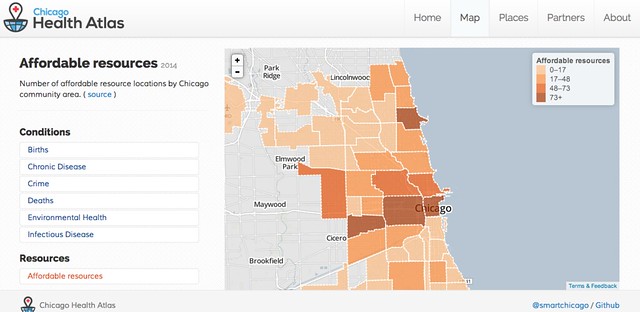In preparation for the Illinois Health Datapalooza, we wanted to take a deep dive into the different kinds of health data already available to developers at the state, local, and federal level. A big part of the datapalooza will be determine what we can do with health data.
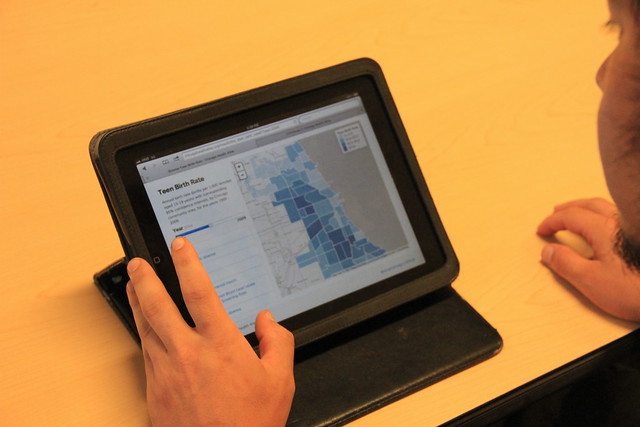
Healthdata.gov
Healthdata.gov is the federal health portal run by the US Department of Health and Human Services. The federal government plays an outsized role in the healthcare field in part by managing Medicare and Medicaide. When a patient received a medical treatment and the federal government pays for it, HHS collects that data. They’ve released this dataset (Inpatient Prospective Payment System (IPPS) Provider Summary) to show the vast variation in cost between different service providers. This particular data set has a well documented API to show how the data was constructed and what each field means.
There are also datasets that get deep into the minutiae of the day to day operations of the health care system. RxNorm is a query tool that’s used to provide normalized names for different pharmacy management systems. (So that if one pharmacy system calls it one name, you can quickly determine it’s name in another system.)
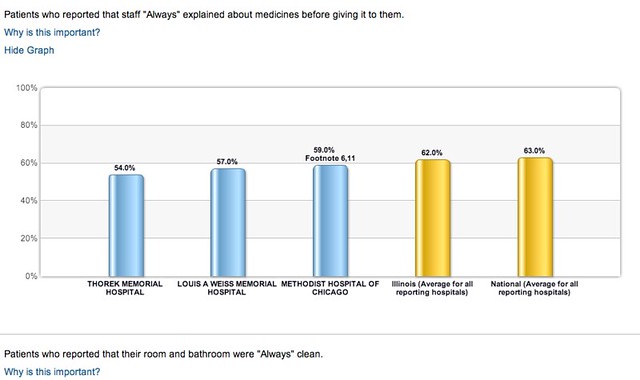
Healthdata.gov also provides the raw data that powers the Medicare Hospital Comparison tool. The tool allows patients to look for the best hospitals possible.
The healthdata.gov site continues to expand it’s offers and will be a great resource for developers, data scientists, and researchers going into the future.
Data.Illinois.Gov
The state’s data portal has 60 different datasets relating to health care. Many of these datasets are directories for different services such as hospitals, hospice care, and rural health centers.
Other datasets include interesting historical health information such as infant mortality rates from 1907 to 2008, divorce rates from 1958-2009, and births by county in 2009.
Data.CookCountyIl.Gov
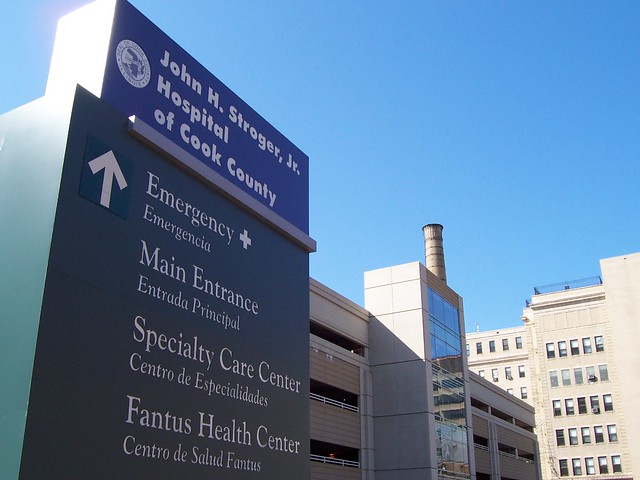
The Cook County data portal has a number of datasets that stem from their administration of the Cook County Health and Hospital System. For example, the county has data about the cost of services for those detailed by the Cook County Sheriff’s Office, causes of death in 2009, and Cook County Vaccination Partners.
Data.CityofChicago.org

The City of Chicago data portal also has several datasets that have health care implications. They include location-based data such as warming center locations, substance abuse treatment facilities, and flu shot locations.
The city also has a number of datasets about the prevalence of health conditions within the city. Many of these datasets, such as diabetes hospitalizations, asthma hospitalizations, and low-birth rates, are used to power the Chicago Health Atlas.
What’s NOT on the portals
Admittedly, there is not enough open data available on the various portals to be as innovative as our public health sector needs to be. Part of the mission of the Health Data Consortium is to foster the availability of health data and to build an ecosystem of health care innovation. So, in addition to talking about data that’s already available, the datapalooza is a perfect opportunity to talk about data not currently available.
There are still slots available for both days. You can find the registration link for the November 8th event here and the November 9th event here.
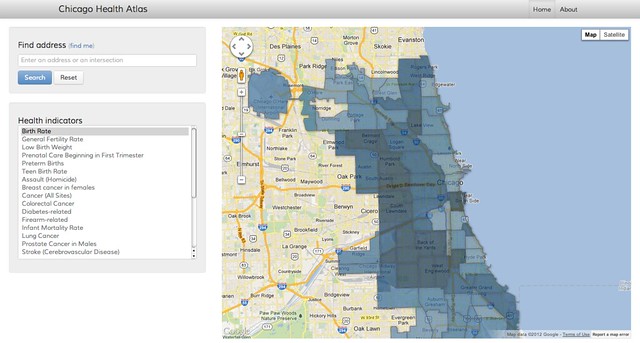
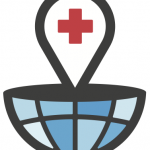 The
The 
